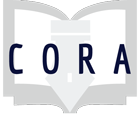The Business Task Cards is a 1-hour team-based activity. The activity was created for a business management course that needed to complete a business opportunity project. The activity requires students to complete four tasks: 1) Find company information, 2) Find a company's income statement, 3) Find articles on a company's management strategy, and 4) Find current industry trends that will impact the company. A print and online version of the activity is provided.
Assignments
In this assignment, students are given a range of newspaper article about science topics and work in pairs to find the original research article that the newspaper article is based on in the library databases. Students then assess when they might use an original research article vs when they might use a well-written newspaper article.
The purpose of this Business Benchmark assignment is to professionally present (3-5 minutes) a new idea to improve and aspect of the college. This presentation has no mandated materials, students are however expected to provide an excellent, well explained, supported and presented new idea. Your goal is to inspire your audience to take a specific action or position.
This project has four Business case elements. Each element is related to one of the student course outcomes. Each case will require students to complete the following:
Read all elements of each case, including exhibits.
Write a one page summary for each case answering the questions in each case, for a total of a 4 page report.
The report should be submitted as one consolidated report addressing all four cases below.
Ready to be an entrepreneur? Your final project is to create a business/product and sell it to your classmates, Shark Tank style! You will complete this assignment individually OR with a partner and your classmates will play the role of the Sharks!
Your company can offer a physical product or a service, but it should not just be a copy of something already offered … BE CREATIVE! Think outside of the box …
About: You are the Chief Executive Officer of an exciting start up Clean Energy Business. This is a web-based free simulation. Students play the role of the founder of a new start-up company in the exciting and competitive clean tech sector. Each quarter students must set prices, decide how many engineers and sales people to hire, and set compensation, including salary, stock, options and profit sharing. Students must also make financial decisions such as debt level, equity level and overall cash management.
This 30-minute activity demonstrates how to search in Google Scholar and explains how results are ranked. It requires students to explore Google Scholar and encourages students to reflect on potential biases this tool might have in regards to research. This lesson plan was Part 2 of an hour-long workshop that also included a 30 minute search engine algorithmic bias lesson.
This 30-minute activity was a quick introduction to algorithmic bias and the importance of critically evaluating search engine results. Algorithms increasingly shape modern life and can perpetuate bias and discrimination. In pairs, students analyzed the results from Google Image searches and Google Autocomplete suggestions. This activity was based on “Algorithms of Oppression: How Search Engines Reinforce Racism,” by Safiya Umoja Noble. This lesson plan was Part 1 of an hour-long workshop that also included a 30 minute Google Scholar activity.
The “Open Access: Strategies and Tools for Life after College” workshop was developed to give students the tools to continue academic research after graduation. Students may not recognize that the library provides many electronic resources for their research that is automatically given to them during their enrollment; by acknowledging their privileged access to information, they are prepared to be responsible researchers beyond campus. The workshop was requested by international students who were concerned about losing access to LMU resources when they returned home.
A scholarly character sheet for self-assessment about information literacy skills - gamification around quantified self, badging and young researcher identity.
Une feuille d'autoévaluation pour suivre les apprentissages en compétences informationnelles acquises sur le moyen ou le long terme. Elle est ludifiée avec des éléments de mesure de soi, de badge et d'identité de jeune chercheur.
